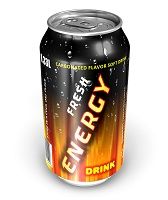Article
Lay Off the Energy Drinks to Maintain Blood Pressure Levels
Author(s):
With a steady rise in energy drink consumption, especially among young adults, several medical studies have connected it to accentuated blood pressure response among caffeine-naïve adults, compared to regular caffeine users.

With a steady rise in energy drink consumption, especially among young adults, several medical studies have connected it to accentuated blood pressure response among caffeine-naïve adults, compared to regular caffeine users.
The latest research reports stress that consumers should be wary of energy drinks as they may increase the risk of cardiovascular problems, like changes in heart rhythm, heart attacks, and even deaths (even among young people).
Results from a recent study were presented Saturday, March 14, at the 2015 American College of Cardiology annual meeting by Anna Svatikova, MD, PhD, a cardiovascular diseases fellow at Mayo Clinic and the study’s lead author.
Svatikova believed the risk could be “greater among people who already have heart problems."
To examine the relationship between energy drinks and the heart, researchers alternately gave a can (473 ml) of commercially available energy drink, Rockstar, or a placebo drink to 25 healthy young adults (age 19-40 years) and assessed changes in heart rate and blood pressure compared to individuals consuming less than 160 mg of caffeine per day.
Svatikova and her team found that participants experienced a “rise in blood pressure (systolic: 4.9±1.3% vs. 6.3±1.3% (P=NS); diastolic 3.8±1.8% vs. 8.1±1.8% (P=NS)) and heart rate after consuming Rockstar as compared to the placebo” — with a nearly doubled increase in people who limit their caffeine intake (systolic: 2.1±0.9% vs. 5.8±0.9% (P=0.009); diastolic: -2.9±1.6% vs. 5.3±1.5% (P=0.002)).
The research concluded that energy drink consumption, does indeed, lead to a significant spike in resting blood pressure, and that the variability in caffeine sensitivity could account for different blood pressure responses and cardiovascular events resulting from caffeinated energy drinks.



